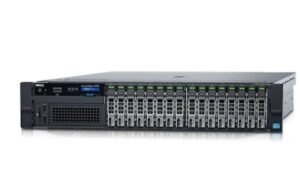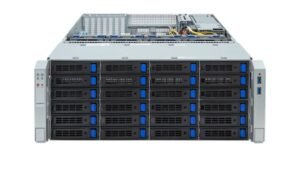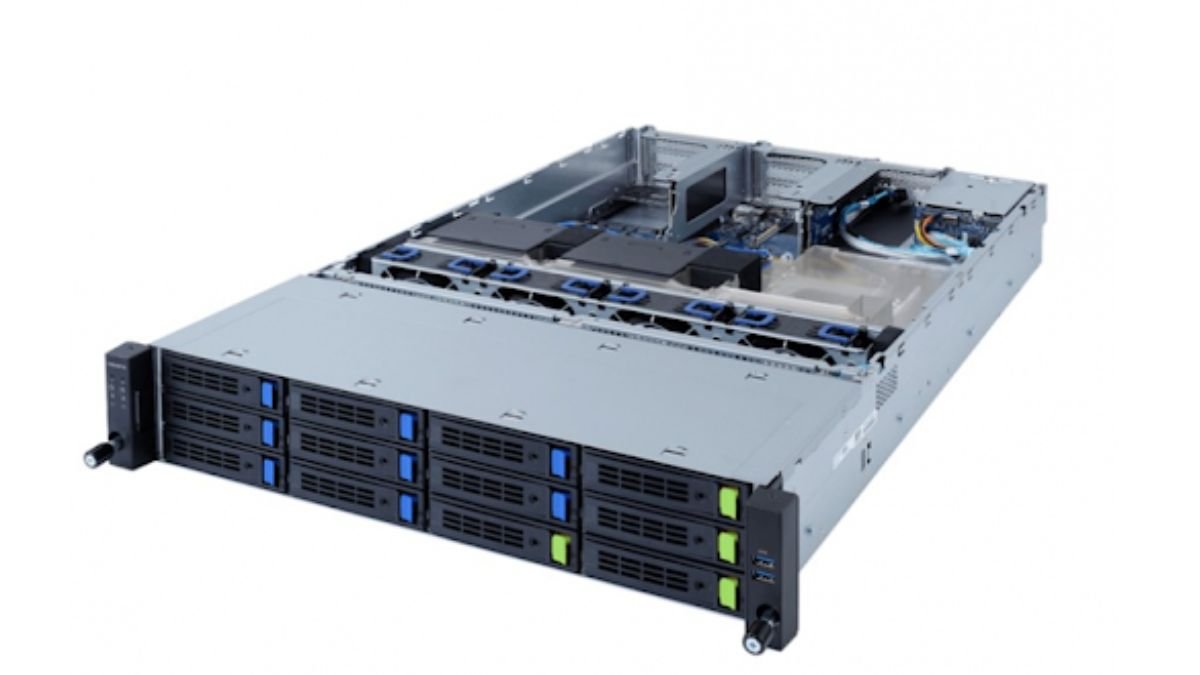How to Choose the Right Gigabyte Server for Your Business Growth
In today’s fast-moving digital world, your business needs more than just great ideas and hardworking people; it needs solid technology to support and scale your operations. One of the most important decisions you’ll make in this area is choosing the right server. And if you’re looking for a blend of reliability, performance, and value, servers should be high on your list.
Why Servers Matter to Business Growth
Let’s start with the basics. What exactly does a server do for your business?
At its core, a server is a powerful computer designed to manage, store, process, and share data across networks. Unlike regular PCs, servers are built to handle large volumes of data and multiple tasks at once without crashing or slowing down.
Think of it this way: If your business were a busy restaurant, the server would be the kitchen managing orders, preparing meals, and making sure everything gets to the right table fast and hot. If that kitchen breaks down, the whole restaurant suffers.
So, choosing the right server isn’t just a tech decision, it’s a growth strategy. A good server helps:
- Keep your data safe and secure
- Support your apps and tools without lag
- Improve team collaboration
- Handle more customers and traffic as you grow
- Reduce downtime and increase productivity
In short, it lays the groundwork for scaling up without chaos.
Understanding Your Business Needs
Before you choose any specific server model, take a good look at what your business actually needs. A server that’s perfect for a five-person startup won’t cut it for a growing e-commerce company with global reach.
Ask yourself these questions:
1. What will the server be used for?
- Web hosting? You’ll need something fast and reliable.
- Data backup and storage? Go for big storage capacity with redundancy.
- Running applications or virtual machines? You’ll need more CPU power and RAM.
2. How many users will be connected?
The more users and devices you have, the more resources your server will need. You don’t want it to slow down during peak hours.
3. Do you have IT support in-house?
Some servers require regular hands-on management. If your team lacks technical expertise, you might prefer a plug-and-play option or something with remote management tools.
4. What’s your budget?
Budget matters, but it’s not just about going cheap. The right Gigabyte Servers offer a good balance of performance, price, and scalability so you get long-term value without breaking the bank.

Key Factors to Consider When Choosing a Gigabyte Server
Once you know your needs, it’s time to look at the technical features that will match them. Here’s what you should focus on:
1. Processor (CPU)
This is the brain of your server. For most business applications, multi-core Intel Xeon or AMD EPYC processors offer solid performance. If your workload is heavy, think virtual machines, databases, or high-traffic websites that aim for higher core counts and clock speeds.
2. Memory (RAM)
Your server’s ability to multitask depends on its memory. More RAM means more users and applications can run at the same time without lag. Aim for at least 32GB RAM for small to mid-sized businesses. If you’re planning to run VMs or large databases, go even higher.
3. Storage (HDD/SSD)
Do you need fast read/write speeds or just lots of space? SSDs are quicker but more expensive, while HDDs offer more space for the price. Many businesses go with a hybrid approach: SSDs for the operating system and HDDs for storage.
4. Scalability
Look for servers that let you upgrade easily. You may start small, but your business will grow, and your server should be able to grow with you.
5. Power Efficiency
Energy-efficient servers save you money in the long run, especially if they run 24/7. Many Gigabyte Servers Systems are designed with green tech to reduce power usage without sacrificing performance.
6. Remote Management
Remote access tools are a lifesaver if you manage multiple locations or want to reduce IT support calls. Features like IPMI (Intelligent Platform Management Interface) let you monitor and troubleshoot without being on-site.
Types of Gigabyte Servers: What Are Your Options?
Gigabyte offers several types of servers tailored to different business needs. Let’s break them down into categories so you know what’s what.
1. Rack Servers
These are the go-to choice for businesses that need a lot of power packed into a small space. Rack servers are easy to stack, which makes them perfect for data centers or businesses with limited room.
Best For:
- Medium to large enterprises
- Web hosting, virtualization, and large databases
2. Tower Servers
Shaped like a traditional desktop, tower servers are ideal for small offices with basic IT infrastructure. They’re quieter and more affordable, but they take up more space.
Best For:
- Small businesses and startups
- File storage, light web hosting, and office applications
3. GPU Servers
If your business is into AI, machine learning, or video rendering, GPU servers offer the performance needed for those resource-heavy tasks. They come with powerful graphics cards and high-speed processors.
Best For:
- AI development
- Video production
- Scientific computing
4. High-Density Servers
Need serious computing power in a small footprint? High-density servers pack multiple nodes into a single chassis, offering maximum performance per square inch.
Best For:
- Cloud providers
- Large enterprises
- Businesses with growing server demands
Setting Up Your Server: Keep It Smooth and Simple
Now that you’ve picked your ideal server type, let’s talk about setting it up the right way. A smooth installation process ensures your server is ready to support your business without hiccups.
1. Choose the Right Environment
Servers need proper surroundings to perform well:
- Place them in a cool, well-ventilated area
- Keep them away from dust and moisture
- Use server racks or cabinets for better airflow and organization
2. Install the Operating System
Most Gigabyte servers support major OS options like:
- Windows Server
- Linux (Ubuntu, CentOS, Red Hat)
- VMware ESXi
Choose an OS based on your IT team’s comfort level and the software you plan to run. Don’t forget to install updates and security patches right away.
3. Set Up Redundancy and Backups
To protect your data and uptime, implement:
- RAID configurations to mirror or distribute data across drives
- Scheduled backups to an external drive or cloud service
- UPS (Uninterruptible Power Supply) to prevent outages from shutting you down unexpectedly
Security Features You Can’t Overlook
Security is a must-have, not a maybe. A good server doesn’t just handle your data—it keeps it out of the wrong hands.
Built-in Protections to Look For:
- TPM (Trusted Platform Module) for hardware-based encryption
- Secure Boot to ensure only trusted software runs during startup
- User Access Controls to limit who can view or change settings
- Firmware Protection to guard against malicious code updates
Most Gigabyte servers also support BIOS-level security settings and encrypted data drives to provide extra layers of protection.
Manage Like a Pro: Remote Tools Make It Easy
If managing a server sounds scary, don’t worry—modern servers are smarter than ever. With Gigabyte’s server management tools, you can handle everything from your desk or even your phone.
Key Tools You’ll Want:
- IPMI (Intelligent Platform Management Interface)
Allows you to reboot, update, or troubleshoot the server remotely—even if it’s powered off. - Redfish Support
A newer standard for simple and secure management across platforms. - Dashboard Monitoring
Keep an eye on CPU usage, storage capacity, fan speed, and more.
With these tools in place, your IT team can spend less time running around and more time focusing on growth and innovation.

Conclusion:
Choosing the right server is more than a tech decision, it’s a business move that can either support your success or slow you down. Gigabyte offers a wide variety of server options that are designed with business needs in mind, whether you’re a small team just getting started or a growing company ready to scale.
By understanding your needs, reviewing key features, and focusing on long-term value, you’ll be able to make a confident choice that pays off in reliability, speed, and peace of mind.
And when you’re ready to take that next step, consider partnering with professionals who know servers inside and out. Cloud Ninjas are trusted experts in Gigabyte hardware solutions, offering support, insights, and top-tier service to help your business thrive with the right infrastructure.











